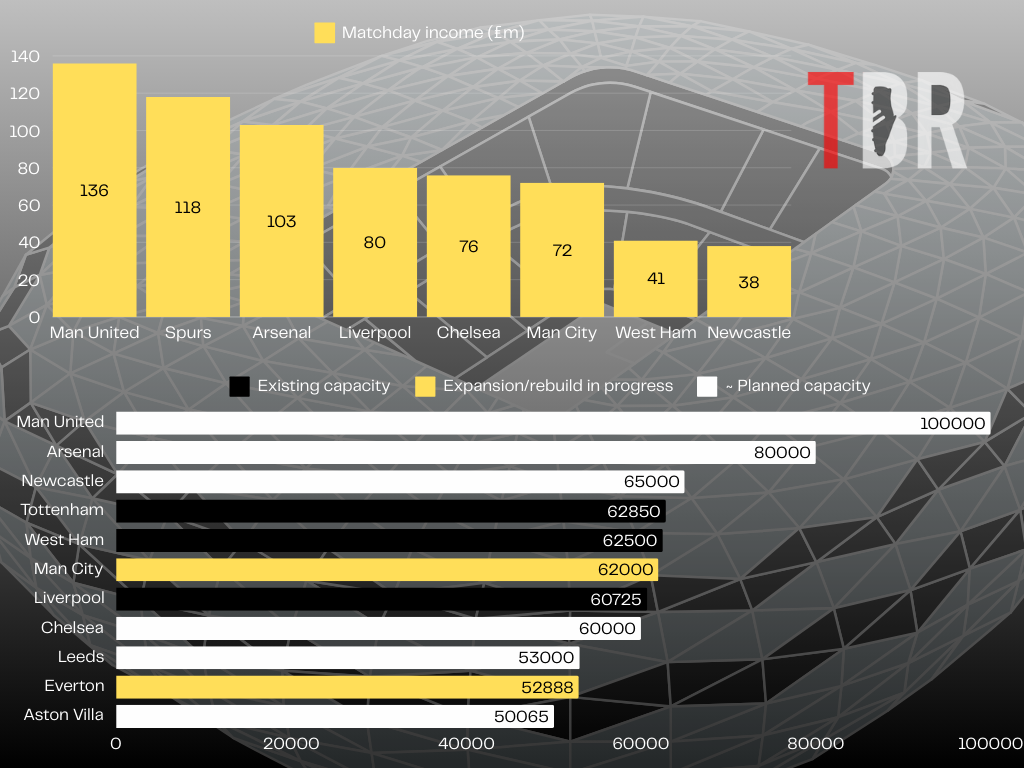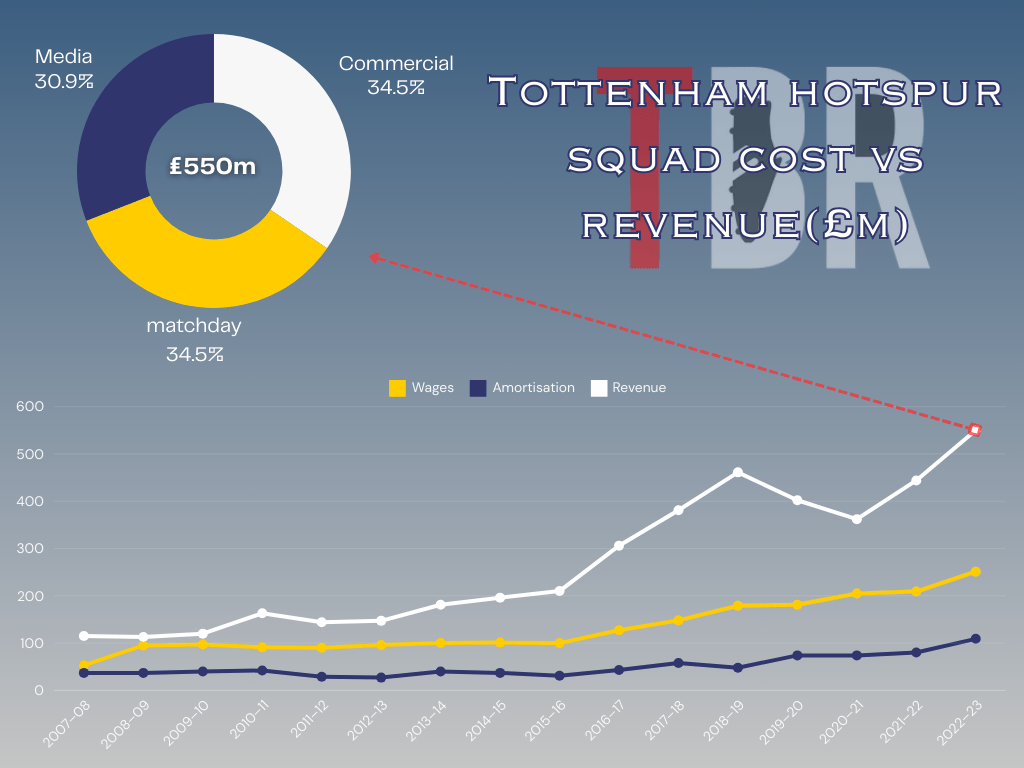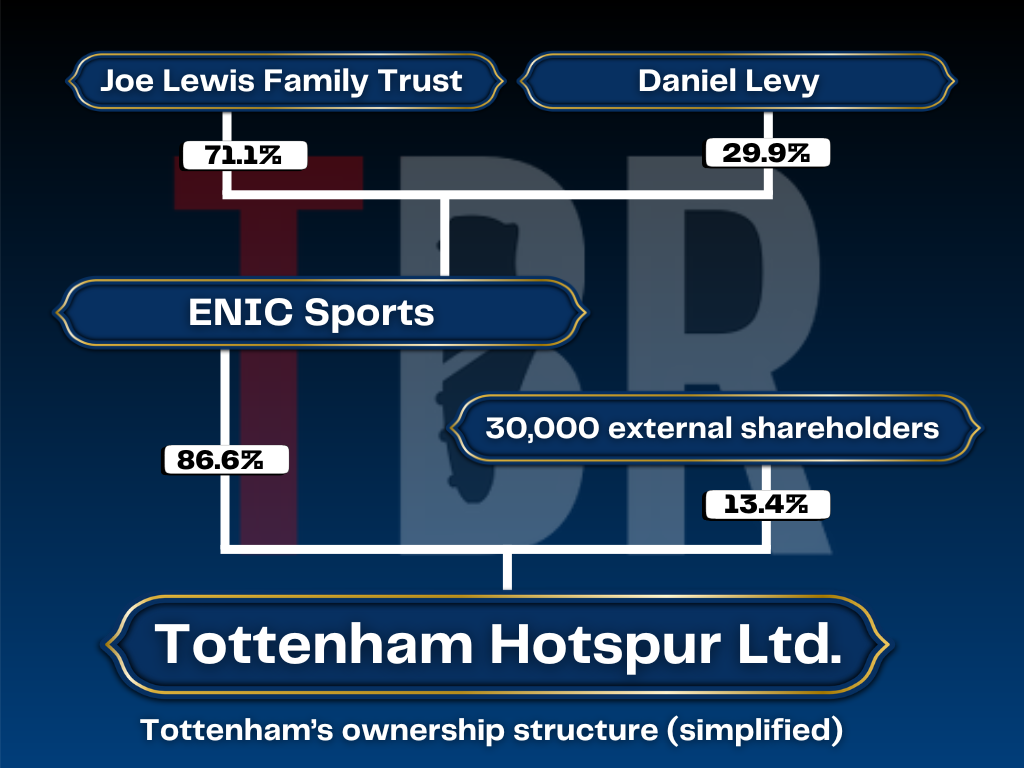Tottenham Hotspur’s connection with the NFL has proven to be both financially rewarding on a per-match basis and transformative in terms of global brand exposure.
This partnership exemplifies a modern commercial approach, which many traditional Spurs fans view with skepticism and concern. Their apprehension stems from the belief that the club’s increasing focus on commercial ventures has come at the expense of its core footballing ethos and loyalty to long-standing supporters.
The optics of the situation at the highly profitable Tottenham Hotspur Stadium further amplify this divide. The recent move to phase out concessionary ticket prices, referred to by the club as a “pause,” has fueled criticism that Chairman Daniel Levy and ENIC, the club’s owners, are prioritizing revenue over the needs of the club’s foundational fanbase.

Football finance expert Kieran Maguire has described this phenomenon as the diminishing importance of the so-called “legacy fan,” a shift that is not unique to Tottenham but emblematic of broader trends in modern football.
Adding to these concerns, many fans feel that the club’s state-of-the-art stadium now hosts more non-football events than it does matches featuring Ange Postecoglou’s team.
Critics argue this dilutes the identity of the stadium as a footballing fortress. However, the club defends its strategy, emphasizing that hosting high-profile events like NFL games and concerts by global superstars such as Beyoncé generates significant income. This revenue, the club claims, is reinvested into player recruitment, retention, and other football-related operations.
Despite these claims, financial data reveals a growing gap between revenue and expenditure on wages and player signings.

While spending has increased in line with revenue growth, the surplus remains notable, sparking questions about the club’s willingness to fully invest in building a competitive squad.
Tottenham’s financial independence places them mid-table in the Premier League ownership hierarchy, significantly behind the financial powerhouses backing the rest of the traditional “Big Six.” This disparity is one reason Levy is actively seeking a minority investor to inject additional funds into the club.
Levy has publicly stated that additional investment would allow Tottenham to “capitalize on long-term potential, continue to invest in the teams, and undertake future capital projects.” This statement aligns with the club’s broader strategy of diversifying revenue streams, a priority evident in its multifaceted partnerships.
For example, the NFL partnership has been integral to Tottenham’s commercial success. The league not only contributes millions annually but also played a role in funding the stadium’s construction. Speculation even suggests that Tottenham could one day host the Super Bowl, cementing the stadium’s reputation as a global sporting hub.

The possibility of direct NFL investment in Tottenham is not far-fetched, given recent developments. The NFL is exploring multi-sport investment models, as seen with its proposal to invest £1 billion in Liga MX, Mexico’s top football division.
This initiative, in collaboration with private equity firm Apollo, aims to restructure Mexican football by pooling commercial rights. Such ventures hint at the NFL’s growing interest in diversifying its portfolio and forming closer ties with football markets, potentially including Tottenham.
Tottenham’s strategy, in contrast to the multi-club ownership models pursued by some rivals, appears to focus on becoming a central hub for various sports and entertainment ventures.
Beyond the NFL, the club has partnered with Formula One to create a unique karting track within the stadium. It has also hosted rugby league and union events and even explored the possibility of staging the 2026 Hockey World Cup final.
These initiatives reflect a vision to position Tottenham Hotspur Stadium as a multi-sport and entertainment destination, leveraging its world-class facilities to generate diverse revenue streams.

The prospect of an NFL-orchestrated investment in Tottenham gains further intrigue from the involvement of Amanda Staveley. The financier, known for her role in facilitating the Saudi-led takeover of Newcastle United, has emerged as a potential minority investor in Spurs.
Reports suggest Staveley has met with NFL officials independently of her interest in the club, signaling a possible alignment of interests. Her consortium, rumored to include U.S.-based backers, underscores the transatlantic appeal of Tottenham’s commercial model.
Staveley’s presence at the Tottenham Hotspur Stadium during an NFL game between the Chicago Bears and Jacksonville Jaguars further highlights her ties to both the club and the league.
While the identities of her consortium members remain undisclosed, their potential involvement could open new avenues for collaboration between Tottenham and the NFL.
Such a partnership would likely strengthen the club’s financial position and enhance its global profile, albeit at the risk of further alienating traditional fans who prioritize footballing success over commercial ventures.
The intersection of sports, business, and fan sentiment at Tottenham highlights the challenges of balancing commercial ambition with the expectations of a passionate fanbase.
While the NFL partnership and other non-football initiatives have undoubtedly boosted the club’s revenue, they also raise questions about its identity and priorities. For fans, the ultimate measure of success remains the team’s performance on the pitch and its ability to compete for major honors.
For the club’s leadership, the task lies in demonstrating that these commercial ventures are a means to that end, rather than an end in themselves.
As Tottenham navigates this complex landscape, the decisions made in the coming months will shape its future both on and off the field. Whether it involves securing a minority investment, deepening ties with the NFL, or refocusing on footballing success, the club’s direction will significantly impact its ability to retain fan loyalty while pursuing its broader ambitions. The challenge lies in ensuring that progress in one area does not come at the expense of the other.

